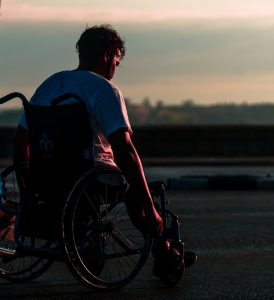
Issues That Could Be Causing Bladder Problems
If you have a hard time controlling your bladder, you shouldn’t be embarrassed. Approximately 25 million Americans have some kind of issue with their bladder. Common problems range from slight leaks when you cough or lift something heavy to bigger problems, like not reaching the toilet in time or not emptying your bladder all the way. Bladder problems can happen for a variety of reasons, so it’s important to know what could be causing it in you. Here are some reasons you could be having trouble controlling your bladder.
Weak Pelvic Floor
The pelvic floor is made up of different muscles that support your bladder and bowel. They also help the uterus and vagina. Sometimes these muscles weaken and aren’t able to support your bladder adequately. Because the bladder isn’t properly supported, it leaks.
Some reasons that you might have a weakened pelvic floor are:
- Childbirth
- Menopause
- Obesity
- Sexual assault
- Surgery
Luckily, there are exercises that you can do to strengthen your pelvic floor muscles. Strengthening your core muscles will naturally strengthen your pelvic floor, but you can also do Kegels. With Kegels, you slowly lift and squeeze your pelvic muscles as though you are stopping a stream of urine. For the best results, repeat this up to 10 times. If you don’t notice improvement, consider seeking help through pelvic floor physiotherapy Burlington ON
Prostate Problems
It’s a natural process that as a man ages, his prostate gets bigger. The prostate is a gland that surrounds the opening of the bladder, so if it gets too big, it can cause problems with your urine stream. While an enlarged prostate doesn’t always mean that you have cancer, you do want to get it checked out.
The best way to fix your issues from an enlarged prostate is to control the symptoms of it. Sometimes not drinking for an hour or two before bed can help reduce the symptoms. Additionally, limiting caffeine and alcohol can help. They increase your urine production and can irritate your bladder, which makes your symptoms worsen.
When at all possible, don’t wait to go to the bathroom. When you feel the urge to urinate, do it. Waiting too long can stretch the bladder and cause more damage. It can also be helpful to retrain your bladder. You can do this by scheduling times to go to the bathroom at regular intervals during the day.
Finally, remember to stay active and to eat well. Obesity is linked to an enlarged prostate, so keeping your weight down can help control it. Furthermore, exercise has been shown to help people with urine retention issues and helps reduce problems caused by an enlarged prostate.


















